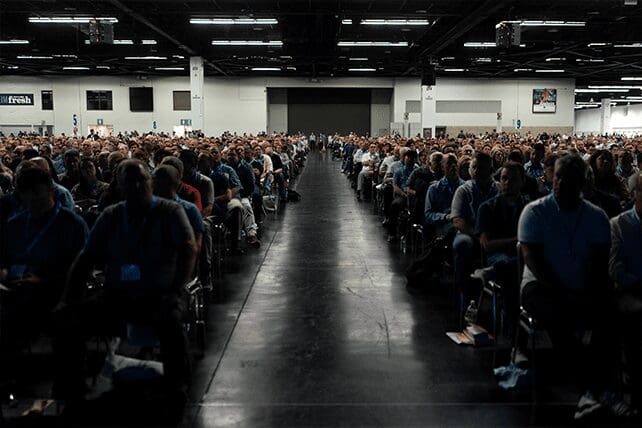The Southern Baptist Convention’s Abuse Reform Implementation Task Force (ARITF) released an update on Thursday (May 25), indicating that the “ministry check” website, which will provide a database of SBC clergy and leaders who have been credibly accused of sexual abuse, will launch with a more restrictive definition of “credibly accused” than originally announced.
Conveying the desire of the ARITF to adjust the parameters used to determine the credibility of accusations in the future, the statement indicated that the task force would “continue to work closely with churches, leaders, survivors and experts to thoroughly address concerns” and create a standard that is both legally prudent and expansive enough to provide necessary protections for abuse survivors and those vulnerable to abuse.
The Task of the ARITF
At the denomination’s 2021 annual meeting in Anaheim, California, SBC delegates, called messengers, overwhelmingly voted to implement reforms to address its sexual abuse crisis. Chief among those reforms was the creation of the ARITF, and the chief responsibility of this newly formed task force has been to implement the ministry check website.
These reform efforts came on the heels of a bombshell investigation conducted by Guidepost Solutions, which found that for at least two decades, denominational leadership had repeatedly and systematically ignored, silenced, and at times even ostracized survivors of sexual abuse.
RELATED: Amid Pressure, SBC Abuse Reform Task Force May Step Back From Using Guidepost Solutions
The legitimacy of the report would later be questioned by some SBC leaders after Guidepost Solutions tweeted their support for LGBTQ+ Pride Month in June 2022, mere weeks before the SBC annual meeting. The denomination’s ongoing use of the firm’s services continues to be a point of contention for many Southern Baptists.
Nevertheless, messengers voted to adopt reform strategies that were derived from the recommendations included in Guidepost Solutions’ report.
The language of the recommendations indicated that the ministry check website would include SBC clergy and leaders who had been “credibly accused” of sexual assault, which was defined to include those who had confessed in a non-privileged setting, had been convicted in a court of law, had a civil judgment rendered against them, or were deemed by an independent third-party investigation to be credibly accused by a preponderance of evidence.
The final category in that fourfold definition has been the subject of fierce debate, as a number of high profile Southern Baptists pastors and leaders have called into question whether it is ethical to place on a public list of credibly accused leaders the names of individuals who had not confessed, been convicted, or been found legally liable.
Emblematic of this debate is the high profile case of Johnny Hunt, a now-disgraced former megachurch pastor and longtime denominational leader who was named in the report, which deemed him credibly accused of sexually assaulting the wife of a fellow pastor toward the end of his term as SBC president in 2010.
Hunt has consistently denied the veracity of the allegations, resuming his public preaching ministry roughly eight months later—a move that called into question whether the churches that hosted him should be allowed to remain in the Convention.
In March, Hunt filed a lawsuit against the SBC Executive Committee and Guidepost Solutions for defamation and invasion of privacy.

